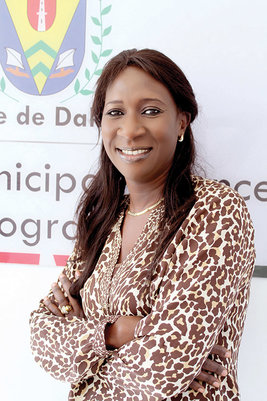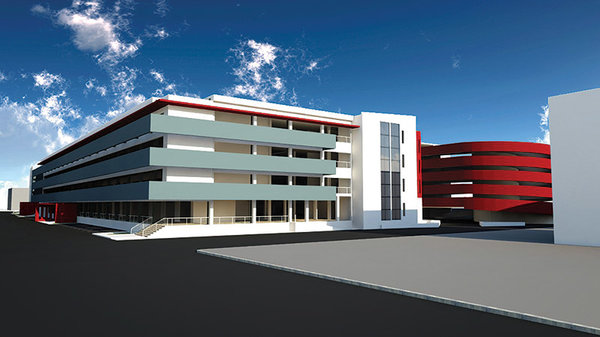
In November 2014, Dakar, the capital of Senegal, picked up a global award for its forthcoming bond issue, which was set to open up the debt markets for the first time to cities in sub-Saharan Africa. Three months later, the issue lies in tatters, blocked by the Ministry of Finance just hours before its launch. Richard Forster spoke to the team behind the issue to see if Dakar can still lead African cities to the capital markets
The 17 February 2015 should have been a watershed in terms of financing development in African cities. It was meant to mark the culmination of three years work by Dakar leading to the first municipal bond issue by a sub- Saharan city outside South Africa.
Dakar’s team had worked tirelessly with the World Bank, Cities Alliance, the United States Agency for International Development (USAID), the Bill & Melinda Gates Foundation, the regional market regulator, CREPMF, and Senegal’s Ministry of Finance to structure a bond that would open up a new swathe of financing for the city’s infrastructure. It also promised much for many other African cities, like Harare and Abidjan, which had been keeping a close eye on the process with a view to launching their own bonds.
Two days before the launch, the Ministry of Finance dropped its bombshell. According to a letter addressed to the regulator, and copied to the team on February 17th, there were technical reasons for stopping the launch. This was the first the team had heard, with the last official communication being a letter of non- objection in July 2014 from the Ministry of Finance, fully supporting the issue.
“We have been talking to the Ministry since 2012 and we had our first non-objection letter in May 2012 and the second one we had in 2014, before and after the reforms, so why just two days before do they want to stop it?” says Dieynaba Dabo, Executive Coordinator of the Dakar Municipal Finance Programme.
According to the Ministry, there are two reasons. The first is related to the reforms mentioned by Dabo. The bond issue had gone before the Municipal Council to get clearance before the urban governance reforms (Act III) had come into being. The deliberations of the council were therefore invalid and needed to be revisited as the reforms had altered the local government set-up in Dakar, giving 19 districts autonomy taking budget away from the mayor. Therefore, the bond needed to be approved in the light of these reforms. This cannot make sense given the principle of continuity of an administration and the fact that the Ministry had sent a non-objection letter in July 2014 after the reforms and after the deliberations of the Municipal Council.
The second reason is that the Ministry felt that the city may not be able to meet its liabilities under the bond and therefore it would bring into play the need for the Ministry itself to step in. In fact one of the key features of the bond was that it does not require a central government guarantee. Credit enhancement instead has come from USAID, which agreed to a 50 percent guarantee for the issue but only after careful due diligence, alongside two credit ratings with investment grades A3 for the transaction and BBB+ for the municipality.

“Even before USAID could give the guarantee, they did a study and had a legal opinion on the legal framework on the city and looked into our finances as well as whether the city was solvent enough to be able to issue this bond,” says Dabo.
She said the Bill & Melinda Gates Foundation, which had supplied US$5.5 million of funding to the programme, had equally sought assurances from the Ministry.
“They wanted it to be clear that the government would not at some point block the operation and by having those letters they trusted the government’s signature,” says Dabo “It doesn’t make sense to sign a letter then to come back later and say you weren’t aware [of the consequences].”
Having devoted three years of her life to bringing the bond issue to fruition, while confused about the governments motives, Dabo is clear on the reasons why such finance is key for the future of her city and others like Dakar.
“We were looking at capital markets so we could diversify our sources of finance and having assessed the commercial market, we found that the capital markets offer the advantages of longer maturities and better interest rates and also more capital than commercial loans,” explains Dabo.
The bonds are intended to be sold through the financial market of the Economic and Monetary Union of West Africa, which brings together eight countries including Senegal which share the CFA franc as their currency.
If the issue is approved, the bonds will be issued through the regional stock exchange based in Abidjan in Ivory Coast (see box for issue details).
Origins of the bond
In October 2011, Khalifa Sall, the Mayor of Dakar, had launched a scoping exercise to review other options to the loan finance, which the city had previously received from the Agence Française du Développement and BOAD (the West African Development Bank) and that exercise resulted in the recommendation to issue a municipal bond.
As part of the planning exercise, the team had visited Johannesburg, South Africa and Douala in Cameroon, which had both tapped the capital markets.
“Joburg had issued without any support from the government and the study trip helped us to anticipate the challenges of issuing such a bond and helped us to select the investment project and identify the needs in terms of human resources,” says Dabo.
Selection of the investment project was one of the biggest challenges facing the Dakar team, as it had to incorporate both the aims of the municipal government and the needs of the partners, which were supporting the bond issue.

The Bill & Melinda Gates Foundation had provided US$5.5 million in funding to support the research and technical assistance needed to implement the financing so the funds had to reflect the needs of the Foundation.
“The challenge was that we had to invest in a social sector because of the Foundation, but also have a project that would generate income as we were launching a bond which is a debt for the city,” explains Khady Dia Sarr, Progamme Director for the Municipal Finance Programme.
To determine the choice of investment project, the city carried out research with city officials and conducted a workshop to decide on the best option for the funds raised.
Much of the city’s poorest citizens are in the downtown area and the idea adopted for the bond was to finance the relocation of 3,500 street vendors from congested, dusty streets to a dedicated new marketplace away from the congestion, which would have a positive impact on 6,000 families, by providing more convenient and hygienic conditions for consumers and vendors.
This would satisfy both the needs of the Foundation in terms of social impact on the urban poor and also promised an economic return to provide comfort to investors in that vendors would rent their stalls in the new marketplace.
Dakar’s Municipal Bond
Issuance amount: US$40 million
Tenor: Seven years
Guarantee: 50 percent (USAID)
Rating: A (short term); BBB+ (long term) Interest: 6.6 percent (semi-annual coupon)

Is there still hope?
If it gets to market, the bond issue is targeted to raise US$40 million from investors, US$30 million of which will be used to construct the 13,000 square metre building, with the rest of the proceeds used to purchase the private land on which the it will be built. The city’s planned issue had even received an investment grade rating from rating agencies Bloomfield Investment and Moody’s but that seems to have little bearing on the Ministry of Finance’s attitude.
The pioneering work of Dakar has opened the eyes of other African cities to the lower transaction costs and better credit terms now available to enable cities to use bond finance as a mainstream source of finance for capital projects. Khady Dia Sarr held meetings with Harare, capital of Zimbabwe, at the World Urban Forum in Medellin in April 2014 and Dabo says there is interest from Abidjan, the biggest city in Ivory Coast as well as other cities in Senegal. But after all the expense and work will the Dakar bond go ahead? At the time of writing, there was no clear outcome.
“We are still exchanging letters with the Ministry of Finance but maybe the last word will come from the President,” says Dabo.
While local politics may be the real reason for obstructing the bond issue– with the Senegalese press claiming that Dakar’s mayor will make a presidential challenge for 2017—President Macky Sall still has a chance to leave a legacy for the continent as a whole.

